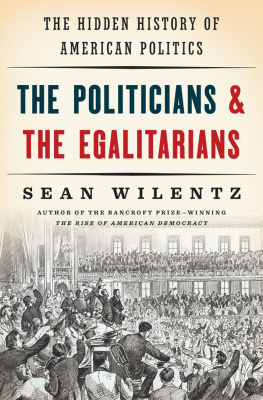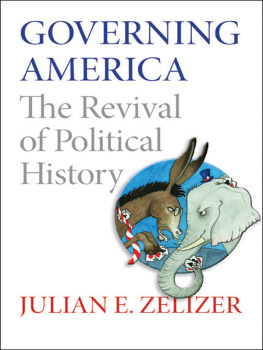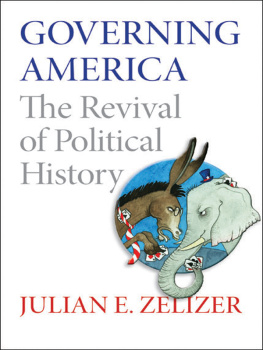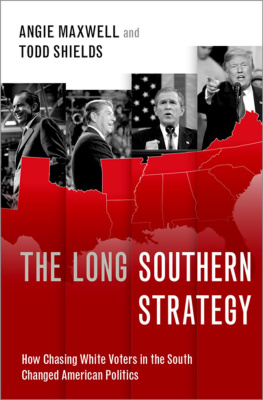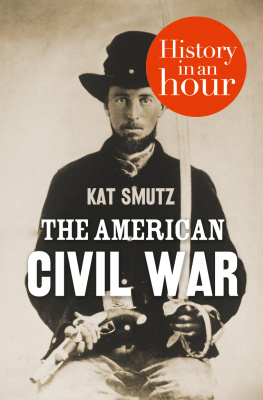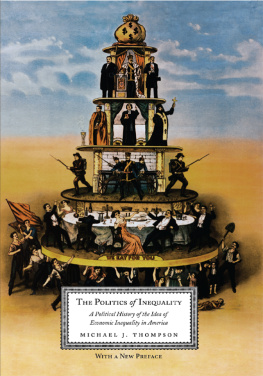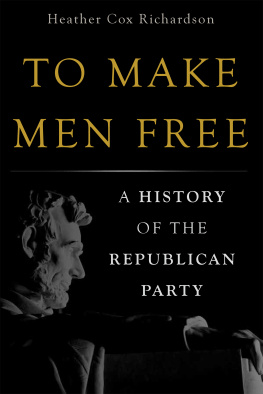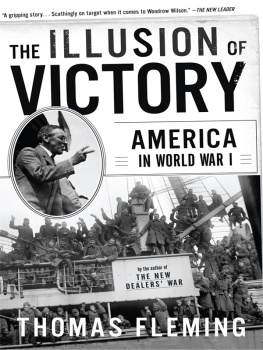
A LSO BY S EAN W ILENTZ
_________________________________
360 Sound: The Columbia Records Story (2012)
Bob Dylan in America (2010)
The Best American History Essays on Lincoln (ed., 2009)
The Age of Reagan: A History, 19742008 (2008)
Andrew Jackson (2005)
The Rise of American Democracy: Jefferson to Lincoln (2005)
The Rose & the Briar: Death, Love and Liberty in the American Ballad (ed., with Greil Marcus, 2004)
David Walkers Appeal to the Coloured Citizens of the World (ed., 1995)
The Kingdom of Matthias: A Story of Sex and Salvation in Nineteenth-Century America (with Paul E. Johnson, 1994)
The Key of Liberty: The Life and Democratic Writings of William Manning, A Laborer, 17471814 (with Michael Merrill, 1993)
Major Problems in the History of the Early Republic, 17891848 (ed., 1992)
Rites of Power: Symbolism, Ritual, and Politics since the Middle Ages (ed., 1985)
Chants Democratic: New York City & the Rise of the American Working Class, 17881850 (1984)

Copyright 2016 by Sean Wilentz
All rights reserved
First Edition
For information about permission to reproduce selections from this book,
write to Permissions, W. W. Norton & Company, Inc.,
500 Fifth Avenue, New York, NY 10110
For information about special discounts for bulk purchases, please contact W. W. Norton Special Sales at specialsales@wwnorton.com or 800-233-4830
Book design by Lovedog Studio
Production manager: Julia Druskin
The Library of Congress has cataloged the printed edition as follows:
Names: Wilentz, Sean.
Title: The politicians & the egalitarians : the hidden history of American
politics / Sean Wilentz.
Other titles: Politicians and the egalitarians
Description: First edition. | New York : W.W. Norton & Company, 2016. |
Includes bibliographical references and index.
Identifiers: LCCN 2016009662 | ISBN 9780393285024 (hardcover)
Subjects: LCSH: United StatesPolitics and government. | EqualityUnited StatesHistory. | PartisanshipPolitical aspectsUnited StatesHistory. | Political cultureUnited StatesHistory. | PoliticiansUnited StatesBiography. | Political activistsUnited StatesBiography. | Social reformersUnited StatesBiography. | Political partiesUnited StatesHistory. | Social movementsUnited StatesHistory.
Classification: LCC E183 .W547 2016 | DDC 306.20973dc23 LC record available at http://lccn.loc.gov/2016009662
ISBN 978-0-393-28501-7 (e-book)
W. W. Norton & Company, Inc.
500 Fifth Avenue, New York, N.Y. 10110
www.wwnorton.com
W. W. Norton & Company Ltd.
Castle House, 75/76 Wells Street, London W1T 3QT
To John Lewis

It may be well for the statesman to know that statesmanship easily degenerates into opportunism and that opportunism cannot be sharply distinguished from dishonesty. But the prophet ought to realize that his higher perspective and the uncompromising nature of his judgments always has a note of irresponsibility in it. Francis of Assisi may have been a better Christian than Pope Innocent III. But it may be questioned whether his moral superiority over the latter was as absolute as it seemed. Nor is there any reason to believe that Abraham Lincoln, the statesman and opportunist, was morally inferior to William Lloyd Garrison, the prophet. The moral achievement of the statesman must be judged in terms which take account of the limitations of human society which the statesman must, and the prophet need not, consider.
Reinhold Niebuhr, 1929

T HERE ARE TWO KEYS TO UNLOCKING THE SECRETS OF American politics and American political history. Current historians, in their enthusiasm for insight of a new and attractive sort, have mislaid these keys, and now they are hidden from sight. Once recovered, though, and put to use, the keys quickly demonstrate their usefulness.
The first key is to recognize both the permanent reality and the effectiveness of partisanship and party politics. Americans have been loath to believe these things. The founding generation distrusted parties. The framers of the Constitution designed a national government they hoped would avoid partisanships debased ambitions and destructive tendencies. More than a hundred years later, reformers of the Progressive Era similarly distrusted parties and tried to replace them with nonpartisan elections and independent commissions of experts. Americans in our own time think likewise. We deplore partisanship. We want government conducted in a lofty manner, without adversarial confrontation and chaos. But more than two hundred years of antipartisanship has produced nothing.
This is because, despite their intentions, the framers built a political system which inspired partisan politics. After some badly-needed constitutional tinkering, the system soon fostered the rise of professional, mass-based, national parties. A nation as large and diverse as the United States has required parties both to turn discontent into laws and institutions and to prevent chronic political breakdown. Americans devised election rules that hand victory to the winner of a plurality of votes, which according to the axioms of political science virtually assures a two-party system in which third parties do not last. Possibly partisan politics is built into human nature. It is certainly built into the American version of human nature.
And partisan politics has survived because, in the United States, it has worked well, or well enough. Historians nowadays dismiss this basic truth. They regard the political parties as hindrances to democracy, and glorify political outsiders and social movements. They point with justice to the countless and unending episodes of partisan politicians corrupting our politics and sustaining social wrongs. Yet the great issues in our history have been settled not from friction between politicians and egalitarians but from the convergence of protest and politics. Party democracy has succeeded even in addressing the most oppressive of all American problems, which was slavery, and which in the end could only be settled in blood. Impeded by a party system designed to keep slavery out of national politics, antislavery partisans and politicians built parties of their own; and the carefully rigged party system fell apart; and the election to the presidency of one of the antislavery party politicians, Abraham Lincoln, forced the crisis that led to the slaveholders rebellion and, in time, emancipation. Ever since, all of the great American social legislation, from the Progressive Era to the New Deal to the Great Society, has been achieved by and through the political parties.
The second key to American political history is the recognition that, from the very start, Americans have recognizedand sometimes been consumed bythe need to combat economic privilege and to strengthen what Walt Whitman called the true gravitation-hold, a vast intertwining reticulation of wealth. The struggle against economic inequality has been a great subterranean river in our political past, sometimes breaking through the surface, sometimes returning underground. Americans have fought endlessly about the meaning of democracy, and about government authority, and about rights and social justice. Running through these fights has been a recurring insistence that vast material inequalities directly threaten democracy.
Next page
